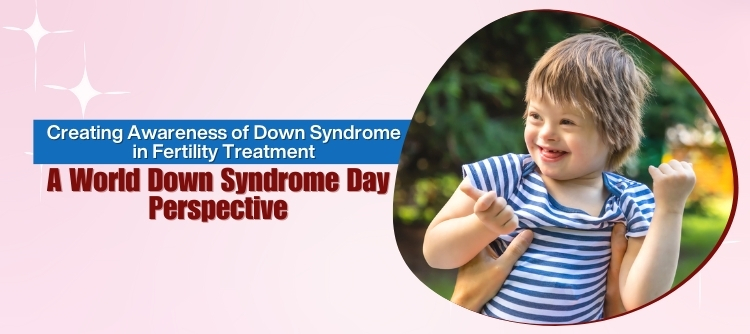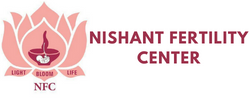Creating Awareness of Down Syndrome in Fertility Treatment: A World Down Syndrome Day Perspective

Every year, on March 21st, we come together to observe World Down Syndrome Day (WDSD), a global awareness initiative that promotes inclusion, advocacy, and understanding of individuals with Down syndrome. While much of the conversation revolves around education, healthcare, and social inclusion, an important yet often overlooked aspect is the role of fertility treatment in relation to Down syndrome awareness.
Understanding Down Syndrome and Its Genetic Basis
Down syndrome, also known as trisomy 21, occurs when an individual has an extra copy of chromosome 21. It is one of the most common genetic conditions, affecting approximately 1 in 700 births worldwide. Although the condition occurs naturally and is not caused by any particular behavior or environmental factor, certain risk factors—such as advanced maternal age—can slightly increase the chances of having a baby with Down syndrome.
The Role of Fertility Treatments in Down Syndrome Awareness
With advancements in assisted reproductive technology (ART), including in vitro fertilization (IVF) and preimplantation genetic testing (PGT), prospective parents are increasingly able to make informed decisions about their reproductive health.
However, this raises ethical, medical, and personal considerations about how Down syndrome is perceived within fertility care.
1. Preimplantation Genetic Testing (PGT)
PGT is a procedure used in IVF to screen embryos for chromosomal abnormalities before implantation. While this can help reduce the likelihood of genetic conditions, it also brings up ethical concerns. The choice of whether or not to transfer an embryo with trisomy 21 should be guided by accurate information and a deep understanding of what it means to raise a child with Down syndrome, rather than misconceptions or societal biases.
2. Raising Awareness, Not Stigma
It is crucial that fertility specialists, genetic counselors, and medical professionals provide unbiased, compassionate counseling about Down syndrome. The goal should be to ensure that prospective parents have access to factual, supportive, and inclusive information rather than promoting fear or discouraging the possibility of having a child with the condition.
3. Supporting Parents’ Choices
Families choosing to continue a pregnancy or implant an embryo with trisomy 21 should receive adequate resources, connections to support networks, and access to specialists who can help them navigate the journey ahead. Many children with Down syndrome lead fulfilling, joyful lives with the right medical care, educational support, and community inclusion.
Changing the Narrative Around Fertility and Down Syndrome
On World Down Syndrome Day, it is vital to challenge outdated perceptions. Rather than viewing genetic testing as a means of “avoiding” Down syndrome, we should advocate for greater awareness, acceptance, and support for individuals with the condition. Every family deserves the right to choose what is best for them, but those choices should be based on education, not fear.
As fertility treatments continue to evolve, the focus should not only be on genetic selection but also on fostering an inclusive society that embraces diversity. By recognizing the value and potential of individuals with Down syndrome, we take one step closer to a world that celebrates all abilities, choices, and lives.
Related- Understanding How Infertility Treatments Work and Their Effectiveness
Join the Conversation
This World Down Syndrome Day, let’s commit to spreading awareness, sharing accurate information, and supporting families in their fertility journeys. Every life is valuable, and every family’s journey is unique—let’s embrace that with empathy and knowledge.
